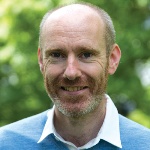Royal Society
Wolfson Research Merit Awards
Awards are worth £10,000-£30,000 a year, which is a salary enhancement
- Award winner: Vladimir Markovic
- Institution: University of Cambridge
Dynamics and geometry of curves and surfaces in negatively curved spaces
- Award winner: Johnjoe McFadden
- Institution: University of Surrey
Building an in silico description of the host-pathogen interaction in TB
- Award winner: Rachel McKendry
- Institution: University College London
New paradigms in connected global health for infectious diseases
Health Foundation
Clinician Scientist Fellowships
- Award winner: Virginia Newcombe
- Institution: University of Cambridge
- Value: £526,7
Optimised imaging for integrated serial evaluation in traumatic brain injury prognosis (OPTIMISE-TBI prognosis)
- Award winner: David Church
- Institution: University of Oxford
- Value: £720,325
Mechanistic and biomarker evaluation of POLE proofreading mutations in cancers
- Award winner: Jayati Das-Munshi
- Institution: King’s College London
- Value: £623,199
Health inequalities in ethnic minority service users with serious mental illness: understanding pathways to reduced life expectancy
Leverhulme Trust
Research Project Grants
Sciences
- Award winner: Doerthe Tetzlaff
- Institution: University of Aberdeen
- Value: £249,380
Plant-water interlinkages in northern uplands: mediation of climate change?
- Award winner: Dudley E. Shallcross
- Institution: University of Bristol
- Value: £181,407
Urban airborne particulate pollution, air ions and electric charge effects
Social sciences
- Award winner: Matthew Struebig
- Institution: University of Kent
- Value: £226,392
Tolerating tigers: do local beliefs offset human–carnivore conflicts?
Economic and Social Research Council
- Award winner: Ernesto Schwartz-Marin
- Institution: Durham University
- Value: £196,000
Citizen led forensics: DNA and data-banking as technologies of disruption – a novel way to learn and intervene in the search for the disappeared in Mexico
In detail

Transformative Research Call
Award winner: John Garry
Institution: Queen’s University Belfast
Value: £186,018
Randomly selected “politicians”: transforming democracy in the post-conflict context
This project investigates an alternative to voting. Would randomly selecting ordinary citizens to become politicians enhance the quality of democracy? “A parliament made up of a random sample of citizens would be, statistically, very similar to society as a whole (unlike current parliaments dominated by middle-aged, well-educated men),” said Dr Garry. “We focus on the post-conflict setting of Northern Ireland and ask whether the addition of a random chamber could help to solidify peace, giving power to ordinary citizens (who typically have quite moderate views) to determine the direction of politics.” He added that the project hopes to discover how much support there is among Northern Ireland citizens for changing the system to incorporate a random component and what the views of current elected politicians are to such a proposal.
Register to continue
Why register?
- Registration is free and only takes a moment
- Once registered, you can read 3 articles a month
- Sign up for our newsletter
Subscribe
Or subscribe for unlimited access to:
- Unlimited access to news, views, insights & reviews
- Digital editions
- Digital access to THE’s university and college rankings analysis
Already registered or a current subscriber?

